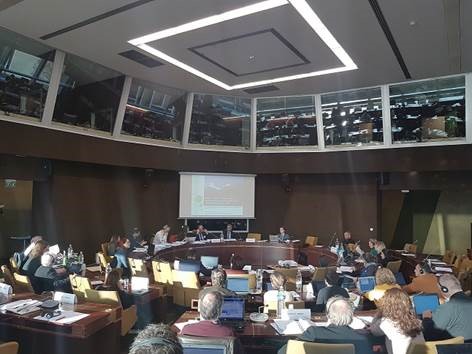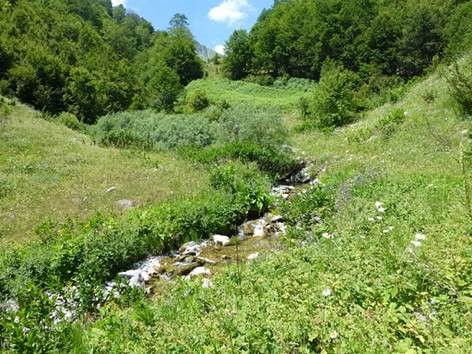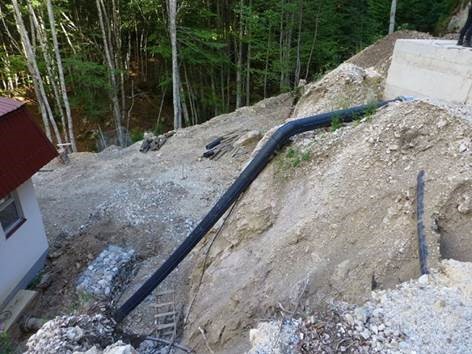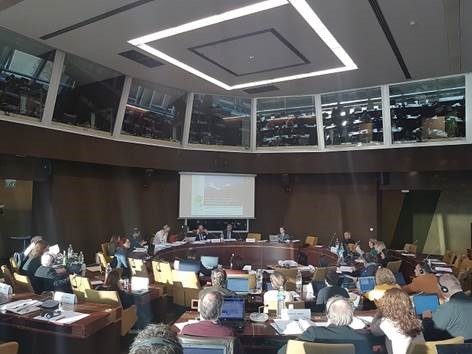
The Standing Committee of the Berne Convention at its annual meeting held on 5-8 December decided that plans for 17 hydropower plants in the Mavrova National Park in Macedonia should be suspended immediately. The Standing Committee highlighted its main concern regarding the continued construction of small hydropower plants within the park.
The governing body of the European wildlife treaty has expressed concern about the irreversible impact of hydropower plants on the park’s unique ecosystem for two years. In 2015, the Standing Committee of the Berne Convention forced the Macedonian government to stop any further work on the construction of hydropower plants, pending a full analysis of all impacts, in the form of a strategic environmental impact assessment.

“Such projects should not be allowed in protected areas. The regeneration of the ecosystem is impossible in the conditions when the water regime is unstable or the river beds are dried up”, explains Ana Colovic Lesoska from the claimant organization Eko-svest, member of the CEE Bankwatch Network in Macedonia. The 2015 recommendation of the Permanent Committee also calls on Skopje to complete the process of reconfirming Mavrova’s status as a National Park. After several years of campaigning by Macedonian and international environmental groups, the European Bank for Reconstruction and Development and the World Bank gave up financing of two large hydropower plants planned to be built in the park – Boskov Most and Lukovo Pole. However, according to a recent report from the government on the implementation of the Standing Committee’s recommendation, the decision to officially suspend the 2 controversial projects remains to be approved. The report also states that, while the government does not plan to grant new concessions for small hydropower plants inside the national park, it also does not take measures to stop the development of those projects for which concessions have already been granted.

As the Macedonian government has dragged the matter on until now and moreover did not send any representatives to the meeting in early December – the Standing Committee of the Berne Convention reiterated its call for the cessation of hydropower works in the park. “Hydropower plants are incompatible with biodiversity conservation and have no place in protected areas such as Mavrova National Park,” said Theresa Schiller from EuroNatur.
The 2015 recommendation also calls on Skopje to complete the process of reconfirming the status of Mavrova as a national park. But the draft law on the re-proclamation of Mavrova National Park, drafted in 2015, needs to be revised. “This law is contrary to the Berne Convention and national legislation on nature. Instead of prioritizing the protection and promotion of biodiversity in Mavrovo, the law leaves the possibility of building new hydropower plants in the territory of the park. The government should adopt the law in accordance with the guidelines and recommendations of the IUCN”, said Aleksandra Bujaroska from the Macedonian Organization “Front 21/42”.
The rare Balkan lynx in Mavrova National Park must be protected
In addition, during the meeting the Committee decided to add the Balkan Vulture to its list of strictly protected species of fauna. A national symbol of Macedonia – the Balkan lynx – is found only in its western part, mainly in Mavrova National Park. This species is critically endangered, with a population in the wild of only 30 individuals. Scientific data published earlier this year by the Macedonian Ecological Society (MES) showed that this rare species of feline is successfully breeding in Mavrovo, further emphasizing the need for careful protection and appropriate management of the national park.
Additional information
- This is a joint press release from EuroNatur, Eko-svest, Front 21/42, Bankwatch and Riverwatch
- The “Save the Blue Heart of Europe” campaign aims to protect the most important rivers in the Balkans. It is coordinated by the NGOs EuroNatur and Riverwatch and implemented together with partner organizations from the Balkan countries. In Macedonia with Eco-svest and Front 21/42.








